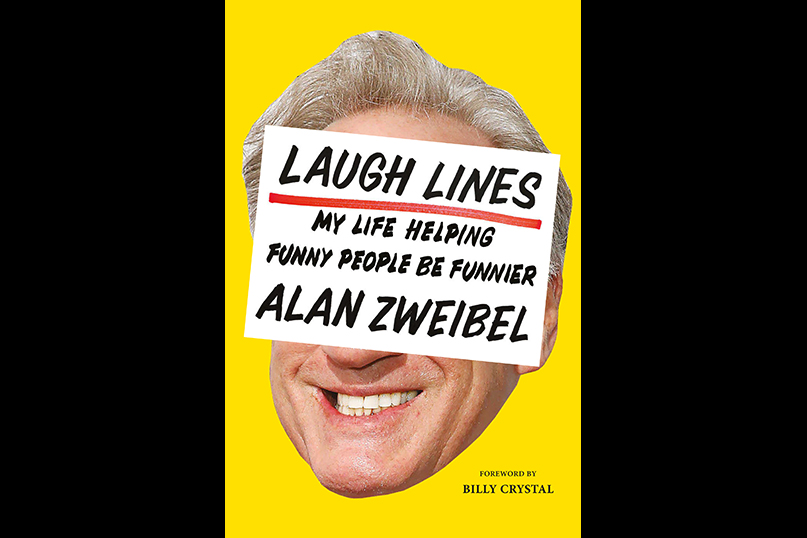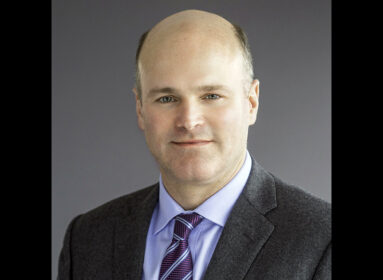
Emmy Award-winning comedy writer discusses his funny and poignant new book at the New Haven JCC virtual book fest, Nov. 19
By Judie Jacobson
Alan Zweibel launched his comedy career by selling jokes for seven dollars apiece to the last of the Borscht Belt stand-ups. Then one night, despite bombing on stage, he caught the attention of Lorne Michaels and became one of the first writers at Saturday Night Live, where he penned classic material for Gilda Radner, John Belushi, and all of the original Not Ready for Prime Time Players. From SNL, he went on to have a hand in numerous landmark series, from It’s Garry Shandling’s Show to Curb Your Enthusiasm.
The recipient of multiple Emmy and Writers Guild of America Awards for his work in television, Zweibel also collaborated with Billy Crystal on the Tony Award–winning Broadway play 700 Sundays and won the Thurber Prize for American Humor for his novel The Other Shulman.
Zweibel will discuss his memoir, Laugh Lines: My Life Helping Funny People Be Funnier, at the Book Festival in Your Living Room hosted by the Jewish Community Center of Greater New Haven on Thursday, Nov. 19, 8-10 p.m. on Zoom.
In his new memoir, Zweibel takes readers through his long career in the comedy-writing business, weaving together his own stories and interviews with friends and contemporaries, including Larry David, Richard Lewis, Eric Idle, Mike Birbiglia, Sarah Silverman, Judd Apatow, Susie Essman, Dave Barry, Rob Reiner, and more. And, of course, his good friend of 45 years, Billy Crystal, who wrote the book’s foreword and with whom he cowrote and coproduced the upcoming film Here Today that stars Crystal and Tiffany Haddish.
This interview has been edited for clarity and space concerns.
JEWISH LEDGER: Tell us about growing up Jewish. Did your Jewish background influence your career in comedy?
ALAN ZWEIBEL: It was first generation suburbia. My grandparents came over from Europe. My parents’ childhood was in Brooklyn. And then they were able to buy a house on Long Island. It was a really fun time. There were still vestiges of my grandparents that we kept in my house; we kept kosher etc.
When I first started out in this career, I was writing jokes to stand-up comics who worked in the Catskill Mountains, and they were Jewish, and “700 Sundays” which I did with my friend Billy Crystal, that’s just loaded with Jewish things; and I just completed a movie with Billy that will come out sometime after the first of the year and that he stars in with Tiffany Haddish, and there’s a bar mitzvah scene, so you know… It’s who I am and I never fought against it.
I was surprised to read in your book that you got your start with the Borscht Belt comics. What did you learn from them that helped you in your career?
I wrote for all these comics at the point that those who were going to be big stars had already moved out to California, so I was pretty much left writing for the other guys who were left behind. It was my first introduction out of college.
I learned about adaptability. Many of the Catskill comics I wrote for are still alive, they’re in their 80s and still performing.They have weathered the storms or the changes in comedy. And they’re still making audiences laugh a lot with the same jokes and the same senses of humor.
Can you give us an example of a joke you wrote for a Catskill comic?
For example, I wrote a joke about a Hasidic orgy, it was really unusual because it was men on one side of the room and women on the other.
You’ve worked with many comedians. But you’ve also worked with actors who are not comedians. For example, in your book you talk about writing a sitcom for the late Farah Faucet and Ryan O’Neal. Is it more difficult to write for somebody who’s not a natural comedian?
Those two people you mention were hard to write for because they weren’t funny. I’ve been really lucky, because everyone else I’ve written for or with has been funny and I do write with other writers who don’t perform. I write a lot with Dave Barry, for example, who is a Pulitzer winner. He’s fun to collaborate with.
If somebody is funny the same way you are. It’s a lot easier because the process becomes social. And so you build off each other you know, it’s like any, any relationship. If you, if you have a friend who makes you laugh, you’re funny with each other. And it’s the same thing professionally.
But if you’re writing for somebody who doesn’t have a sense of humor it’s a little harder. A lot harder. They don’t contribute anything really. But the hope is that they’re good enough and they can adapt and see the humor in what you’re writing and bring their own talents to it.
So many of you friends are stand up comedians did you ever consider becoming a stand-up comic?
No, I like writing too much. I mean I speak all over the country and I go on talk shows and that’s fun for me, but I never wanted to do stand-up. I don’t know if I had the talent to be a stand-up comedian, but I never considered it. I just like writing too much.
The book has an instructive tone to it. What is one of the main lessons you would like aspiring comedy writers to take away from it?
It’s this, and I know this sounds sort of generic, but if I can do it, they can do it. I talk about being a kid on Long Island, the oldest of four children, and nobody else did what I did. My mom and dad were really supportive; they knew that I liked writing. My mother was the one who actually ran into a Catskill comic when he was playing in Lake Tahoe. I was just out a college. She said to him “My son wants to be a writer.” So he gave her his name and number and I started writing for him, and then I started writing for other Catskill comics. So she got the ball rolling.
There are lots of lessons to be learned [in the book], but I think the big one is, if you have a dream, persevere; don’t let anybody tell you “oh you know what the odds are of making it,” or “do you know how many people want to do.” You have this one life, so pursue what you think will make you happy without the influence of naysayers.
Is there anybody who you would like to – or would have liked to – write with but haven’t?
That’s a good question. I’ve been really lucky, I mean I wrote for Carl Reiner and Mel Brooks and most of my heroes. I wish I was old enough to have written for Jack Benny and others of the older generation. Of the people who are around today, I would like to write with Sarah Silverman. And, you know, I would love to work with Woody Allen.
But, as I said, I’m pretty lucky. I’m happy to say that I’ve gotten to meet and write with the majority of my heroes.
What will you talk about the New Haven JCC’s Nov. 19 event?
Basically, the book. It will be very anecdotal; it’ll be very funny. I think it will be very relatable for people of all ages. I’ll take them on this journey. I’ll tell them about the hits and also the misses. I also will probably read a very funny but solidly negative review that Roger Ebert once gave me.
I talk about my close friendship with Gilda [Radner]. About when she got sick and how humor helped her survive. And how she made her last appearance on the show I co-created called “It’s Garry Shandling’s Show.”
I act as a tour guide, sort of like taking the audience through the different eras of comedy, but there will be poignant moments too, because I have two major people in my life dying – Gilda and Garry Shandling – and they were very dear to me. I talk about the loss of a friend and how comedy helped me get through it.
Tickets to hear Alan Zweibel speak the JCC of Greater New Haven’s virtual film festival on Nov 19 at 8 p.m. are $11. For more information, contact Scott Cohen at scottc@jccnh.org.








 Southern New England Jewish Ledger
Southern New England Jewish Ledger












